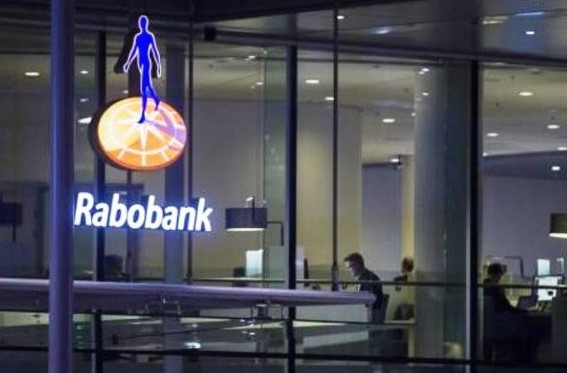ANP photo
By
Ricardo Swire
Rabobank N.A is one of the Netherlands’ largest financial institutions. Fiscal specialists allocate a “Triple A” rating to the influential entity in Europe, the Bank’s assets worth more than US$550 billion.
In 2002 Rabobank N.A purchased several small banks in California, USA. A corporate move that gave the Dutch banking titans one hundred and nineteen locations throughout America’s most populous state. Rabobank N.A originated during the nineteenth century, from micro cooperative banks that facilitated farmers and horticulturists in forty countries. The bank’s global headquarters are in Utrecht, Netherlands.
Recently “The SMX Collective,” led by a Mexican Academic Activist, formally denunciated Rabobank N.A as money laundering heavyweights. SMX Collective’s evidence represented in the disappearance of a Durango male resident, missing since December 2010. Durango along with Chihuahua, Sonora and Sinaloa states form the geographical unity of Northern Mexico. Rabobank N.A is accused of “having laundered structurally and for a long period of time the proceeds of crimes committed by Mexican drugs cartels,” exclusively the Sinaloa Cartel, shady financial proceeds directed via Rabobank’s branch in Calexico southern California, near the Mexican border.
Between 2008 and 2013 Rabobank N.A southern California’s deposits increased thirty-nine percent. From 2010 the Rabobank Calexico branch received two weekly armored truckloads of cash. Wire transfers dispatched the money to customers in Mexico. Drugs money, worth tens of millions of dollars, contributed to increased Rabobank N.A southern California branch profits. US Department of Justice (DOJ) began to probe, the bank’s former Chief Executive Officer (CEO), Financial Intelligence Unit Manager and ex-Chief Compliance Officer (CCO) the main suspects.
In 2013 Rabobank N.A was heavily fined by British, French and Dutch regulators for conspiring with mega banks in the “Libor Scandal,” a complex fraud scheme that manipulated the average interest rate of dollars and yen. In January 2015 Rabobank N.A’s southern California branch was officially closed. America’s Federal authorities continued extensive money laundering investigations. Several other large international financial institutions, such as HSBC and Wachovia, were heavily fined for complicity in Mexico’s Sinaloa Cartel money laundering exploits.
The Bank Secrecy Act of 1970 mandates financial institutions operating in America to cooperate with government, regarding detection and prevention of money laundering. Nevertheless, bank executives instructed employees of Rabobank N.A in San Luis Obispo County, where statewide compliance checks are conducted, to ignore evidence of money laundering. In 2016 US Drug Enforcement Administration (DEA) Task Force, Department of Homeland Security (DHS) and Internal Revenue Service (IRS) special agents discovered a Mexican husband and wife money laundering team, who were paid US$1 million monthly. The revenue collected from local drug wholesalers supplied by the Sinaloa Cartel.
The fifty-nine year old female money launderer’s registered address was Mexico City. Her name featured on America’s expired visa list. The two Sinaloa Cartel emissaries made a minimum of twenty-four cash deposits. Using bogus names they dropped between US$8,100 to US$9,600 at banks in Upper West Side and Canal Street, New York. Cheques were written to a Sinaloa Cartel owned San Diego produce Company, sometimes her representative driving drugs cash across the US/Mexico border.



No Comments Yet!
You can be first to comment this post!